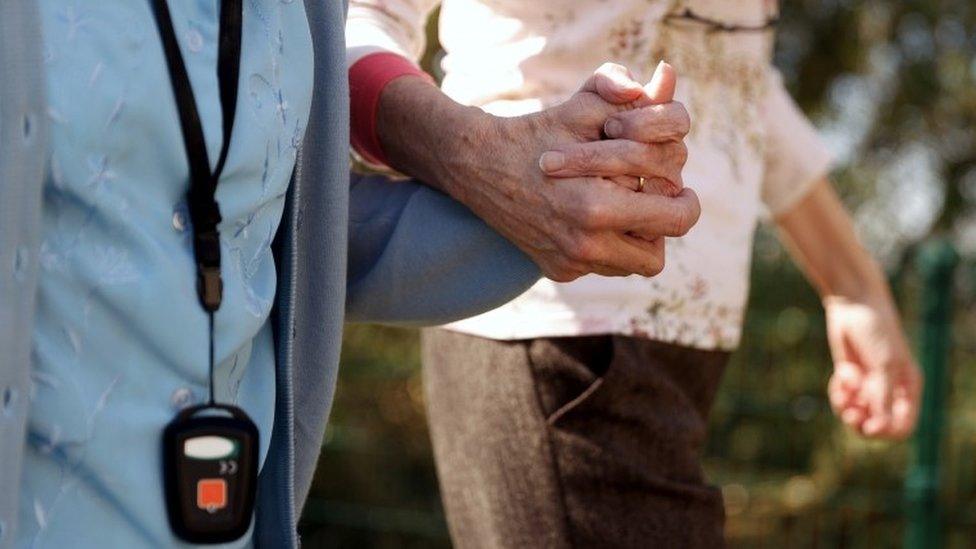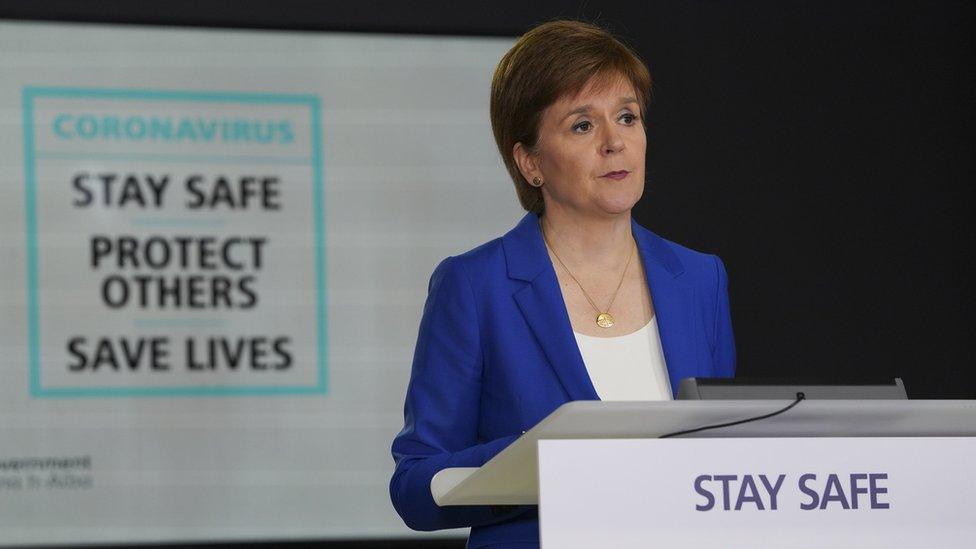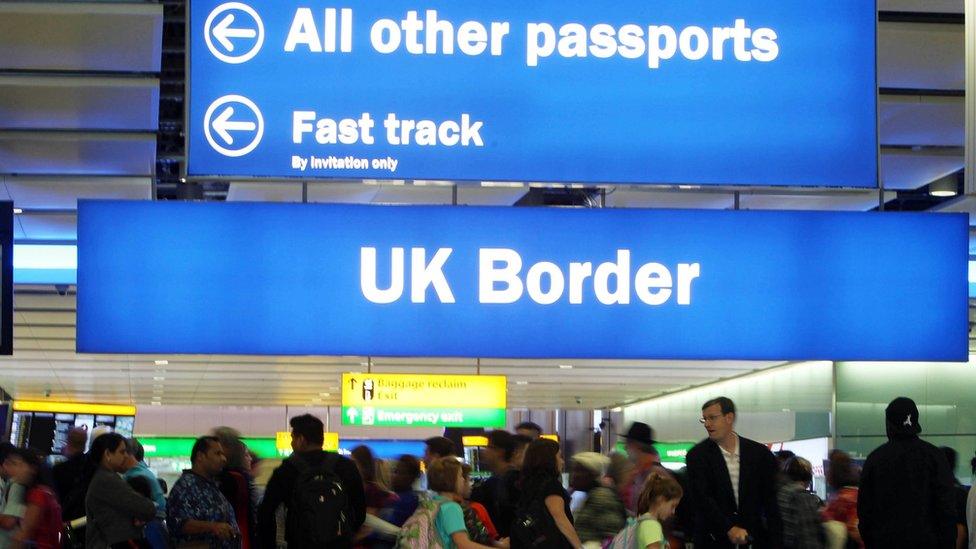Sturgeon: Excluding social care staff from visa plan 'devastating'
- Published

Excluding social care staff from a new visa route in the UK's immigration system could have a "devastating impact", Nicola Sturgeon has said.
The UK government has set out plans for how the immigration system will work after the Brexit transition ends.
It is set to feature a fast-track visa route for healthcare workers, but this will not include social care staff.
The first minister said this decision was wrong and that she would be making "very strong representations" about it.
Home Secretary Priti Patel said the new system would encourage employers to invest in workers from within the UK, while seeking to "attract the best and brightest from around the world".
Freedom of movement from the EU into the UK will end on New Year's Day, when the Brexit transition period expires.
Ministers have set out plans for a points-based system to replace it, including mandatory requirements for visa applicants to have a job offer on the table and to be able to speak English.
The fast-track health and care visa will be open to workers who have a confirmed job offer in one of a series of "skilled" roles within the NHS or care sector, and those eligible will pay reduced fees and hear back within three weeks.
This could include doctors, nurses, radiographers, social workers and paramedics, but unions have criticised the exclusion of frontline care home workers and contractors.
The system will apply across the UK as immigration policy is reserved to Westminster.

Ms Sturgeon said she would be making "very strong representations" to UK ministers
At her daily coronavirus briefing, Ms Sturgeon said up to 8% of Scotland's social care workers were from EU countries, and that the visa plan could cause "huge practical damage to our economy and sections of our society".
She said: "The fact that social care workers will not be eligible for the health and care visa in future could be devastating for that workforce.
"Particularly now when we owe so much to our social care workforce, to exclude them from this visa risks sending the message that we are not grateful for the contribution they have made.
"I think it is the wrong decision and I will make very strong representations to the UK government to change that."
Ms Sturgeon said her government would be "thinking very hard about how we reflect on the lessons of the pandemic", saying the "enormous debt of gratitude we owe" would "undoubtedly be reflected in pay negotiations" and a debate about the structure of the social care system.

Free movement from the EU into the UK will expire when the Brexit transition period ends
The UK government says existing EU workers in the care sector can apply to stay in the UK through the "settled status" scheme, and that "senior care workers" would be eligible to apply via the points-based system.
A spokesman said independent advisors had been "clear that immigration is not the answer to the challenges in the social care sector", saying employers should "focus on investing in our domestic workforce".
In a written statement to the House of Commons, Ms Patel said: "At a time where an increased number of people across the UK are looking for work, the new points-based system will encourage employers to invest in the domestic UK workforce, rather than simply relying on labour from abroad.
"But we are also making necessary changes so it is simpler for employers to attract the best and brightest from around the world to come to the UK to complement the skills we already have."